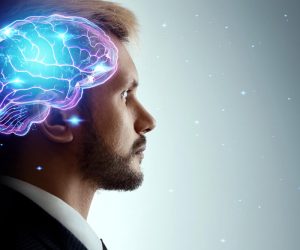5 Ways Heroin Addiction Affects the Brain

How Heroin Affects the Brain
A synthetic opioid once used as a prescription painkiller in the 1800s, heroin is an illegal drug that impacts the brain in several ways and can lead to dangerous long-term and short-term effects. Heroin is extremely addictive, as it binds to opioid receptors, causing a release of dopamine, a chemical that naturally occurs in the brain, creating feelings of relaxation and euphoria. The brain stops producing its own dopamine after developing a chemical dependency (making the brain depend on heroin for dopamine production) and creates a reward circuit causing you to want to use more to get that dopamine flowing in the brain. The reward system also causes the body to react negatively when it does not receive more heroin, causing withdrawal symptoms until you take more, reinforcing the reward system.
Short-Term and Long-Term Effects of Heroin Abuse
Some short-term effects of heroin abuse include:
- Constipation
- Loss of appetite
- Flushed skin
- Respiratory depression
- Severe itching
- Mood swings
- Lowered inhibitions and decision-making capabilities
Some long-term effects of heroin abuse include:
- Collapsed veins
- Blood clots that may lead to stroke
- Liver and kidney issues
- Lung infections like tuberculosis or pneumonia
- Addiction leads to heroin withdrawal when quitting
Can Heroin Abuse Cause Permanent Brain Damage?
There are several ways heroin affects gray and white matter in the brain, like:
- Encephalopathy brain diseases may occur from heroin abuse, as the brain may begin to break down at a molecular level, especially if heroin is inhaled.
- Because heroin drug use and addiction change the brain reward system structure due to physical dependence, it will no longer function normally. Drug addiction is a chronic and irreversible disease that can be managed but does not go away.
- The effects of heroin cause the body to breathe more shallow than normal (depressed breathing), causing the body to receive less oxygen. This lower amount of oxygen can cause organ damage, including brain damage, even when the person does not experience a heroin overdose.
- There is a link between heroin use and dementia due to brain inflammation combined with a buildup of proteins.
- Heroin addiction affects the way neurotransmitters are produced and used, leading to mood and motivational issues that are difficult to treat.
Along with heroin, learn about other recreational drugs here:
Heroin Detox and Rehab at WhiteSands
Our drug rehab treatment center has effective treatment programs to help you overcome your heroin addiction. We provide inpatient rehab and outpatient rehab that can be customized to your needs, along with medication-assisted detox plans to help with cravings and withdrawal symptoms.
For heroin treatment, you may find it best to enter a medical detox plan. It will be followed by 30 to 90 days of inpatient treatment and then a longer-term intensive outpatient program with aftercare to help you transition into your life while still receiving regular heroin addiction treatment to ensure you remain on track with full support and care.
In our treatment plans, we offer therapy and treatments like:
- Individual therapy, group therapy, and family therapy
- Behavioral therapy, including cognitive behavioral therapy and dialectical behavior therapy
- Holistic therapies including yoga therapy, massage therapy, and nutritional counseling
- Dual diagnosis plans for those with a co-occurring disorder like bipolar disorder, depression, anxiety, or PTSD
- Experiential therapy
- Educational programs
- Life skills programs and job coaching
- Relapse prevention
Although it may not be possible to reverse all the damage caused by this substance on the brain, our luxury heroin addiction treatment program options will give you the best chance of recovering from addiction. We help patients regain control over their life from heroin dependence and heal their bodies, mind, and spirit. Contact our team today if you have questions about substance abuse treatment or our inpatient and outpatient programs in Florida.
If you or a loved one needs help with abuse and/or treatment, please call the WhiteSands Treatment at (877) 855-3470. Our addiction specialists can assess your recovery needs and help you get the addiction treatment that provides the best chance for your long-term recovery.
